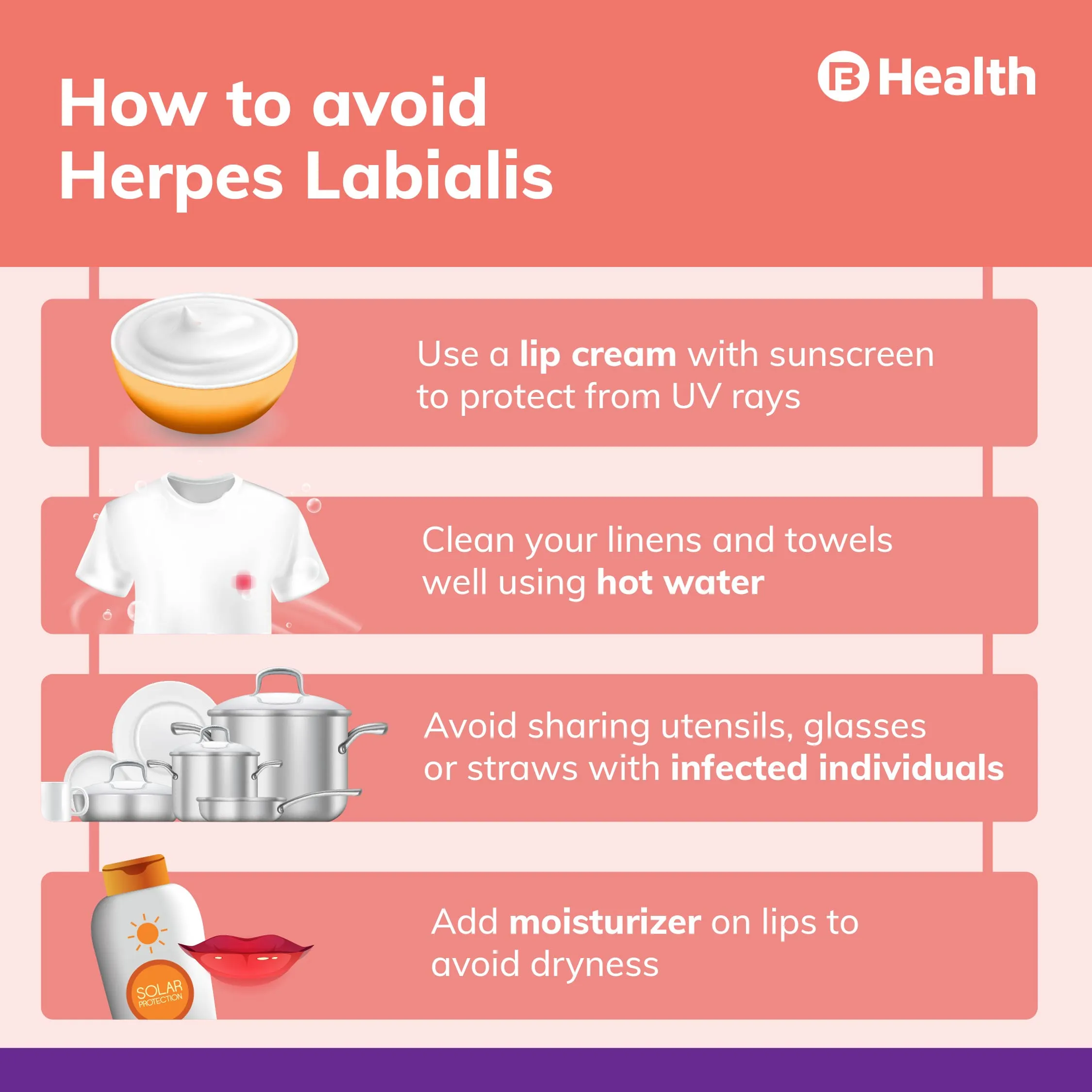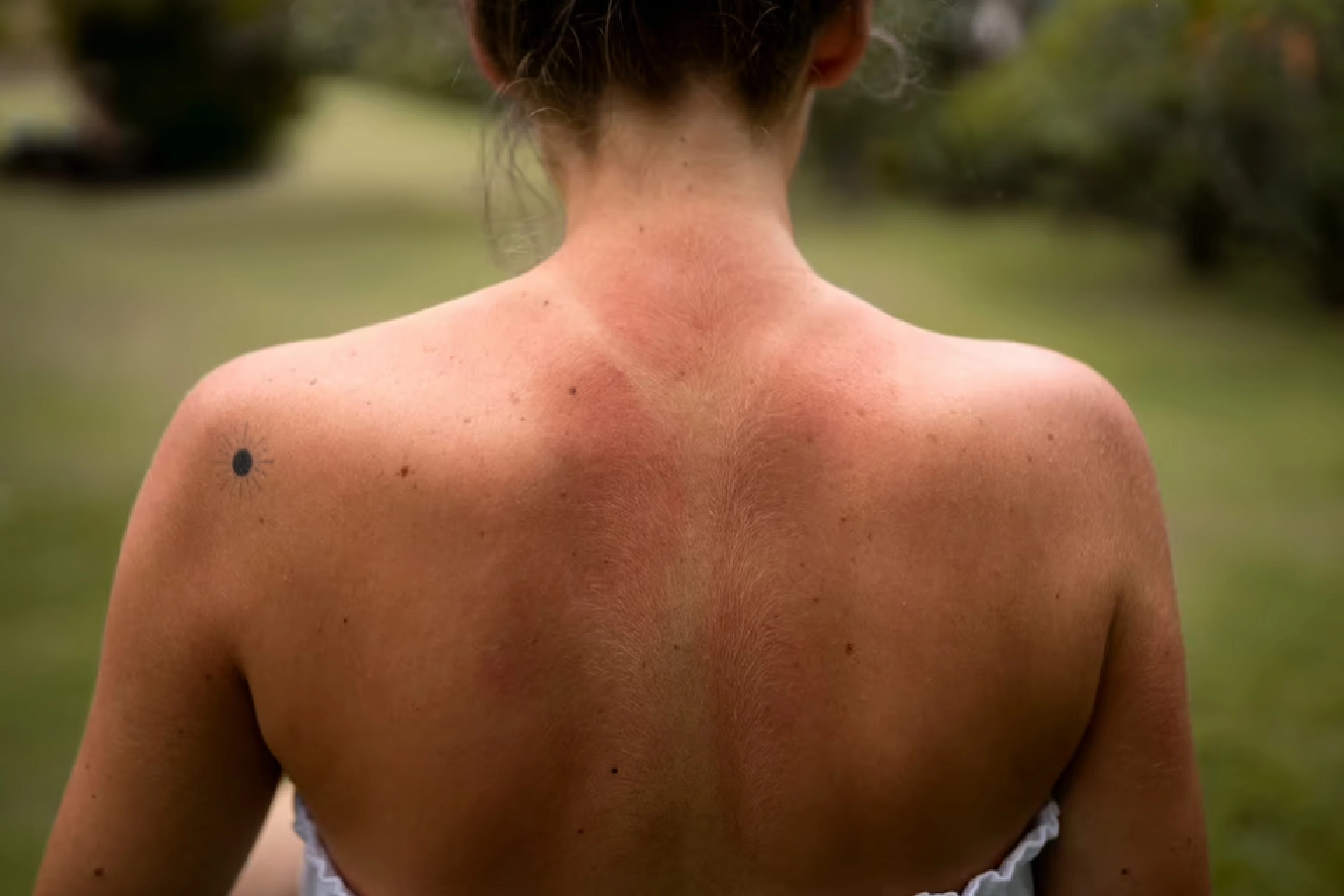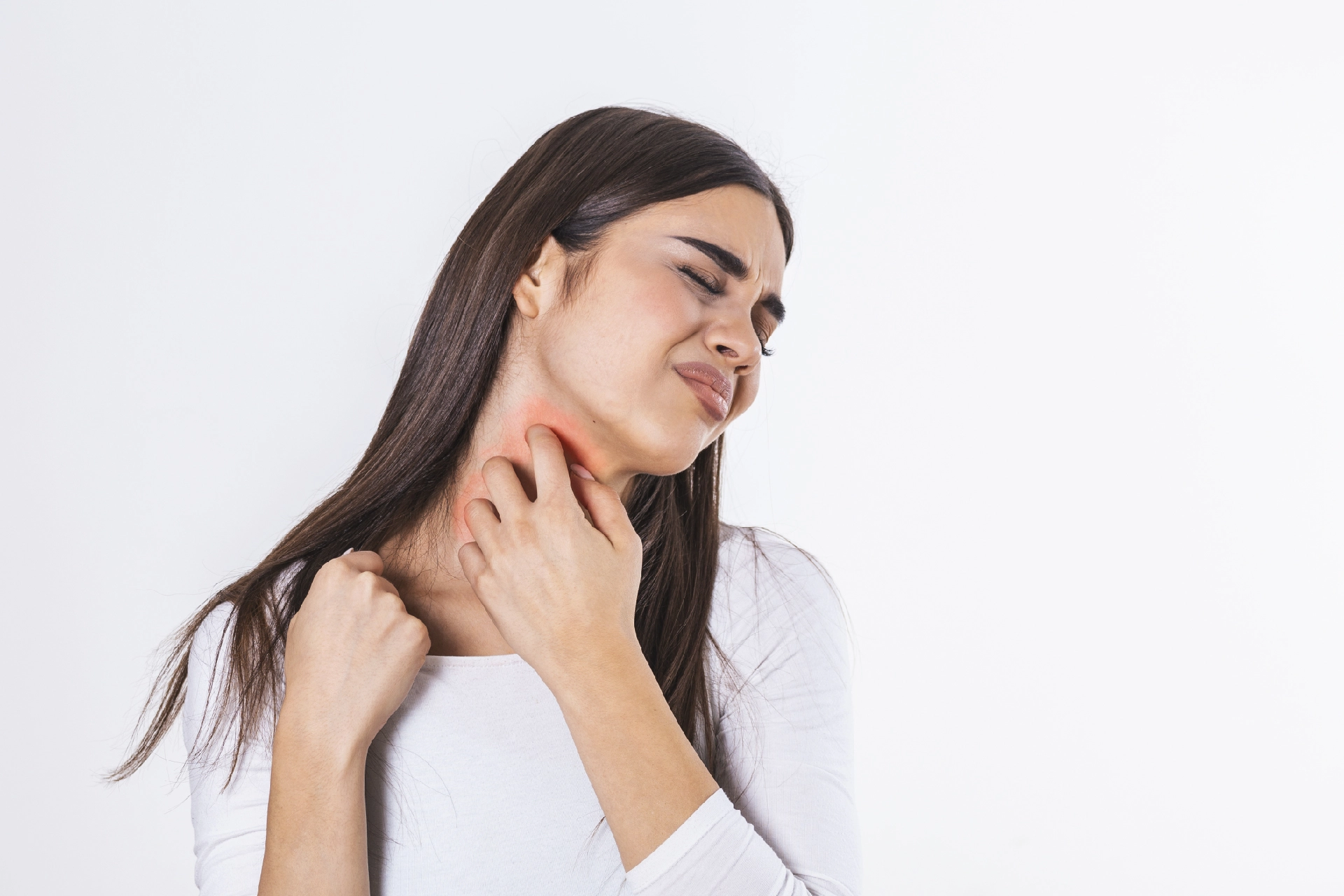Physical Medicine and Rehabilitation | 4 min read
A Guide to Herpes Labialis: How is it Caused? What are its Symptoms?
Medically reviewed by
Table of Content
Key Takeaways
- There are two types of HSV virus: HSV-1 and HSV-2
- HSV-1 causes oral herpes and you get cold sore on lips
- HSV-2 causes genital herpes affecting your genital areas
Herpes labialis is a condition caused by the contagious herpes simplex virus (HSV), which can affect either your mouth or your genitals. The two different types of HSV are HSV-1 and HSV-2. While HSV-1 is responsible for oral herpes, genital herpes is caused by HSV-2. If you develop genital herpes sores, you are more likely to contract an HIV infection. HSV-1 causes cold sore on lips and face [1].
Having herpes labialis results in the formation of small, painful blisters on your throat, gums and lips. HSV gets transmitted from one individual to the other via direct contact. Sharing utensils or lip balm of an infected person can spread the infection.
Read on to know more about how this condition is caused and its symptoms.
Additional read: 8 Oral Hygiene Tips for a Healthy Mouth and Brighter SmileHerpes Labialis: Stages of Infection
This infection occurs in three stages, primary infection, latency period and recurrence. In the first stage, HSV enters through either the mucus membrane or your skin. The virus multiplies and you begin to see symptoms like blisters and fever. In some cases, symptoms do not develop during the first stage.
As it progresses to the second stage, the latency stage, this virus remains in the dormant phase. It resides within the nervous tissue of your spine. Though it is inactive, it continues to reproduce. When the virus reaches the recurrence phase, you may see that sores start to develop. You may also start to notice herpes labialis symptoms again. Though recurrent herpes can be treated with prescribed medications, it is better not to delay the treatment. In some cases, the symptoms you see may be milder than the primary infection.

Herpes Labialis: Symptoms
Once the virus affects your body, it takes some time for symptoms to appear. Normally, symptoms appear within one to three weeks after you come in contact with the virus. Initially, sores begin to appear on your lips. After this, you may experience burning or tingling sensation around the mouth. This may develop to form small blisters on the lower lip.
Some of the common symptoms that you may notice include:
- Sore throat
- Fever
- Unable to swallow properly
- Muscle pain
- Sore lymph nodes develop in neck
You may see red blisters or even yellow ones. In some cases, several small blisters join to form a huge one. Small blisters that contain clear fluid may also appear.
Herpes Labialis: Causes
Though infection is caused by HSV-1, this condition may occur due to HSV-2 occasionally. This virus spreads easily from one person to another if you come in close contact with infected individual. If you happen to share towels, dishes or razors previously used by affected person, you can contract the infection. During the second stage when the virus remains dormant, few conditions can cause the recurrence of virus. Some of the examples of these conditions include:
- Upper respiratory infection
- Menstruation
- Stress
- Fatigue
- Changes in hormones
- Fever
- Weak immune system
Herpes Labialis: Treatment
If cold sores develop, they get resolved within ten days of infection. Use antiviral creams to get relief from symptoms so that healing occurs faster. In case of severe symptoms, antiviral medications are prescribed [2]. These medicines need to be taken as soon as you experience symptoms. Taking proper self-help measures can help reduce the symptoms of herpes labialis.
Few of these measures include:
- Clean blisters with antiseptic soap and water. This way you can stop the spread of virus to other parts of the body.
- Avoid having excess spicy and salty foods.
- Always gargle your mouth with cold water.
- Place ice on the blisters that helps reduce pain
- Rinse with salt water regularly.
- Have pain killers to feel better.
Though symptoms of herpes labialis usually subside within three weeks after the initial infection, there may be chances for symptoms to reappear. To avoid frequent infections, consult a doctor immediately if you notice any oral herpes symptoms. If there are any visible changes on your skin, you can book an online doctor consultation with top dermatologists on Bajaj Finserv Health. Address your skin concerns at the earliest and stay healthy!
References
- https://www.ncbi.nlm.nih.gov/pmc/articles/PMC2907798/
- https://www.ncbi.nlm.nih.gov/pmc/articles/PMC2602638/
Disclaimer
Please note that this article is solely meant for informational purposes and Bajaj Finserv Health Limited (“BFHL”) does not shoulder any responsibility of the views/advice/information expressed/given by the writer/reviewer/originator. This article should not be considered as a substitute for any medical advice, diagnosis or treatment. Always consult with your trusted physician/qualified healthcare professional to evaluate your medical condition. The above article has been reviewed by a qualified doctor and BFHL is not responsible for any damages for any information or services provided by any third party.





